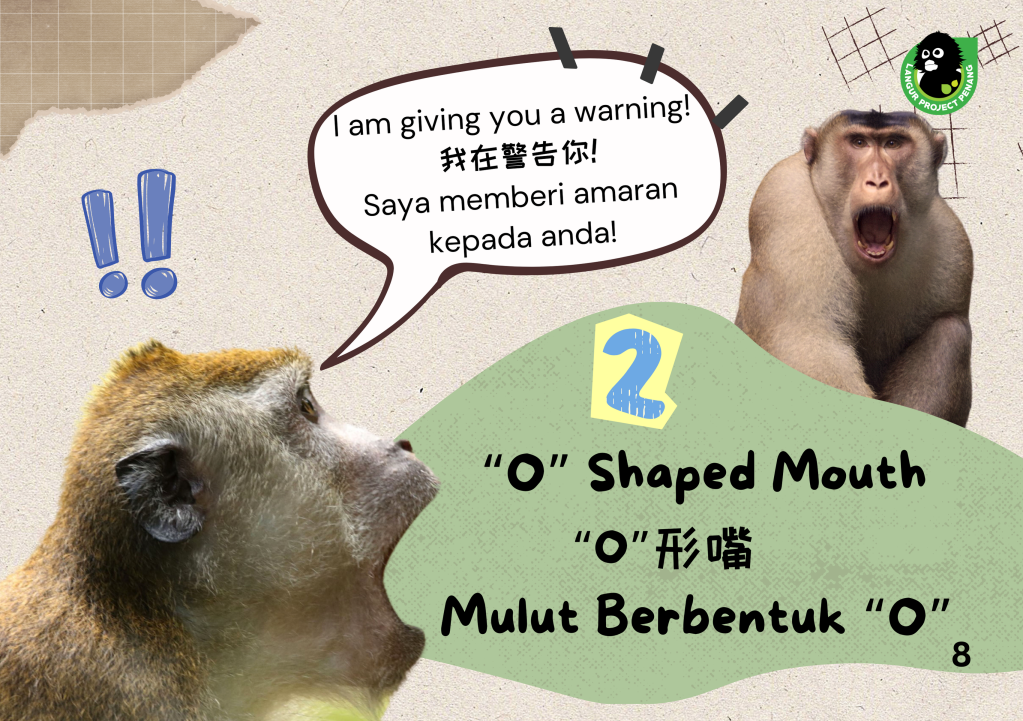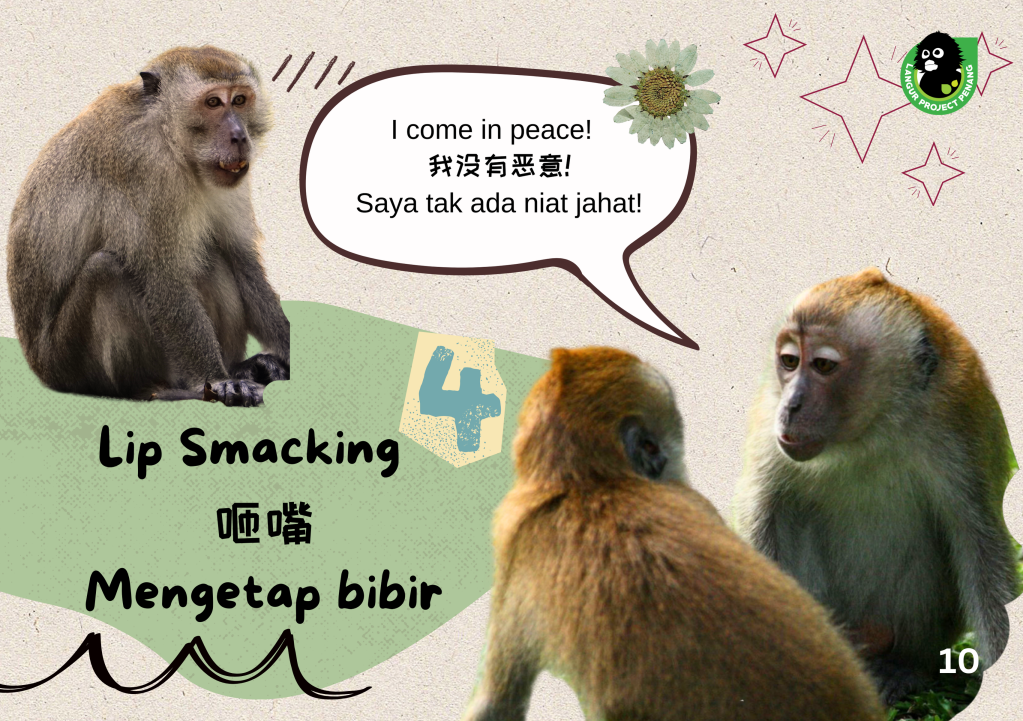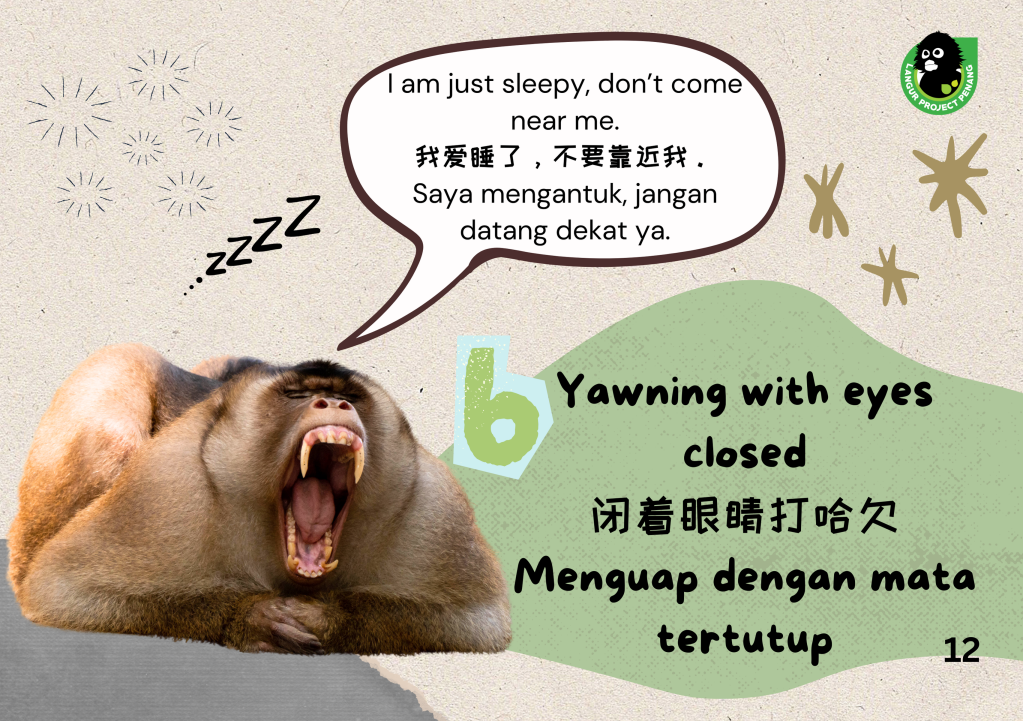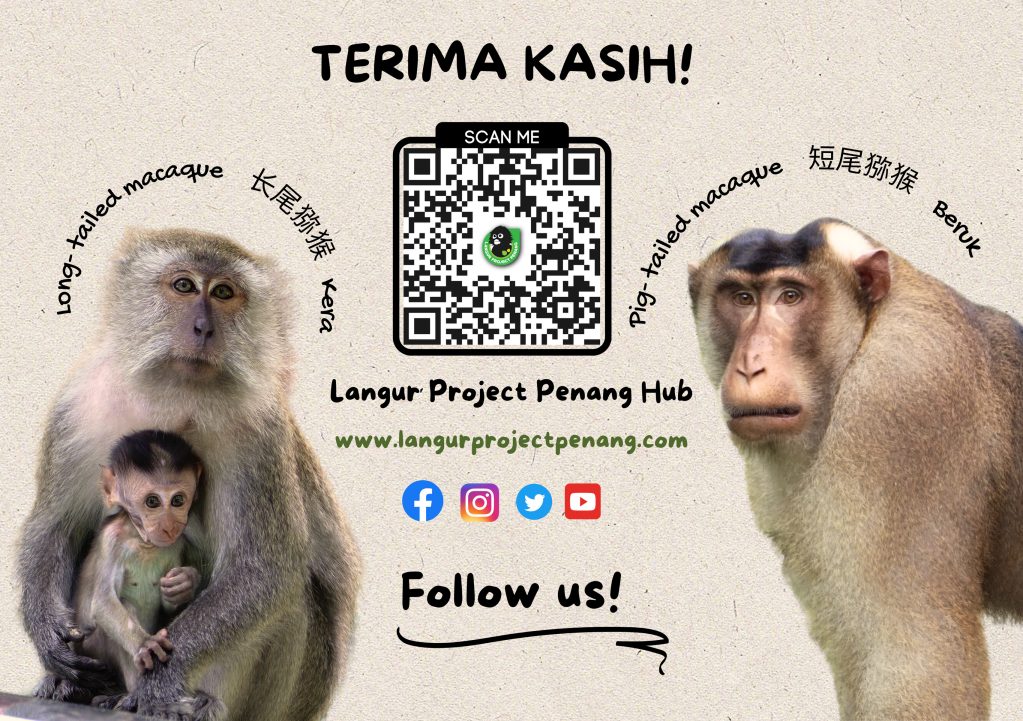
Macaque encounters: Navigating interactions with our primate neighbours
These long-tailed macaques, our primate neighbours, have long graced our towns and cities.
Their presence is a reminder of our deep-rooted connection with nature. Yet, as we navigate the intricacies of coexistence, understanding their expressions and behaviours becomes important to fostering a harmonious relationship.
The Langur Project Penang Hub (LPP), a beacon of primate conservation and community engagement, has produced a comprehensive guidebook, “‘Ada Monyet!?’ Monkey Encounter Guide”. This invaluable guide digs into the complex realm of macaque expressions, enabling us to understand their subtle signals and navigate encounters with understanding.
Furthermore, this guidance acts as a reminder for us, as humans, to do better in terms of respecting the environment and protecting our natural surroundings.






Macaque expressions: A window into their world.
The guidebook shows the macaque’s expressive versatility through attractive graphics and compelling storytelling. We learn by interpreting their relaxed postures and their alert gazes, which indicate inquiry or concern.
With each page flip, we get better at recognising monkey emotions, from fear grins to lip-smacking.
Understanding macaque expressions is critical for reducing human-macaque negative interaction (conflict) because it allows us to anticipate their behaviour, avoid provoking fear or hostility, and develop mutual respect.
Here are three specific examples of how understanding macaque expressions can help reduce human-macaque negative interaction:
– A hiker encounters a group of macaques on a trail. By recognising the macaque’s relaxed posture and alert gaze, the hiker can calmly pass by without causing alarm.
-A farmer observes macaques approaching his orchard. By paying close attention to any signs of agitation or alertness cues from the macaques, he can take measures to safeguard his crops, such as covering the fruit trees while the macaques are still at a safe distance and before they exhibit any signs of aggression.
-A group of children encounters a group of macaques while playing in the recreational park. By understanding the macaques’ body language, the children can avoid approaching them too closely or making sudden movements that could trigger fear or aggression.






Understand macaques, embrace coexistence.
Many may not know that feeding the macaques can lead to unintended consequences, intensifying negative interactions between humans and macaques. Understanding macaques and fostering coexistence in areas where humans and macaques frequently interact is one important sustainable approach.
When humans feed macaques, they become less wary of people and are more likely to approach them in search of food. This can lead to aggressive behaviour, such as biting and scratching, as well as an increased risk of disease transmission. Additionally, monkeys who are fed by humans may become dependent on handouts and less able to forage for food on their own, making them more likely to engage in nuisance behaviours such as raiding crops and garbage bins.
LPP joined forces with the Long-Tailed Macaque (LTM) Project to launch a new initiative called Coexistence for All. This project aims to foster a harmonious relationship between humans and long-tailed macaques in Penang, Malaysia, through community engagement and environmental education.
We aim to tackle human feeding monkey issues, and poor waste management, enhance public understanding of human-macaque interaction through education programmes, interviews, and study of macaque species and work with the community to develop a management plan and recommendations for potential humane and sustainable approaches to mitigate negative human-primate interactions in Penang.
We are delighted to introduce the “Ada Monyet!?” Monkey Encounter Guide and No Feeding Monkey Campaign in collaboration with the Bukit Mertajam community, with the generous support of YB Lee Khai Loon, Pusat Khidmat Adun Machang Bubok, and MPKK Cherok Tokun. This campaign aims to engage community members and educational institutions to promote respect for macaques and our primate neighbours, emphasizing the importance of refraining from feeding monkeys.




There are many reasons why it is important for the community to support the No Feeding Monkey campaign. By supporting this campaign, you can help to:
- Reduce the risk of conflict between humans and macaques.
- Protect the health of both humans and macaques.
- Help macaques to maintain their natural foraging behaviour.
- Support conservation efforts in Penang.
If you are a member of the Penang community, there are many ways you can support the No Feeding Monkey campaign. You can:
- Spread the word about the campaign to your friends and family.
- Put up signs in your neighbourhood asking people not to feed monkeys.
- Report any sightings of people feeding monkeys to us, Langur Project Penang.

“By joining forces, we can create a community where humans and macaques thrive together. Let’s embrace responsible interactions with our primate neighbours and safeguard the well-being of both humans and macaques.“
The “Ada Monyet!?” Monkey Encounter Guide and LPP’s ‘No Feeding Monkey’ Campaign are funded by Animal Protection Denmark and supported by The Long-Tailed Macaque (LTM)Project.
The photos of the guidebook are provided by Ms. Sabrina Jabaar and LPP team members.
